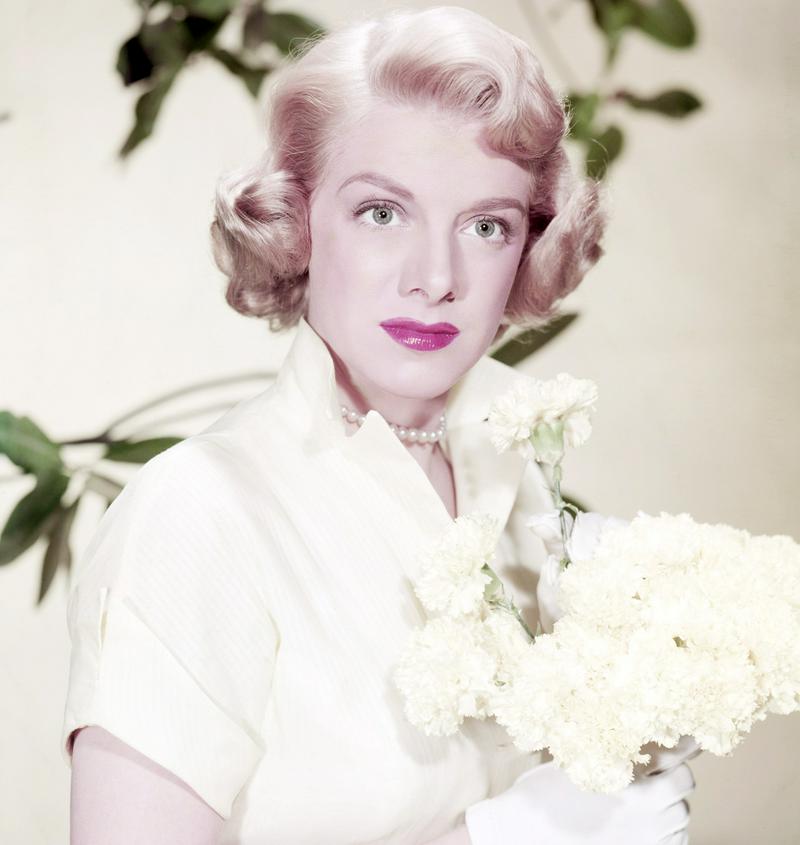Scandalous Music: Songs That Were Banned in the 1950s
By | May 6, 2019

When compared to many of today’s pop songs, the music of the 1950s was downright tame. Still, critics found issues with numerous fifties tunes and demanded that they be removed from radio playlists so the immoral message could not be further spread and negatively impacting young, impressionable minds. Would you believe these 1950s hits were barred from some radio stations?

“Mambo Italiano” by Rosemary Clooney
This spicy, Italy-inspired tune, written by Bob Merrill, was a hit for singer Rosemary Clooney but not everyone appreciated the inclusion of foreign words into the catchy, danceable music. WABC Radio in New York banned the song because they believed the Italian words were too suggestive…even though they didn’t know their meaning. Clooney’s record label fought the ban. They presented the station with documentation from a professor of Italian language and from a Roman Catholic priest, both stating that the Italian words and phrases were not vulgar, suggestive, or offensive.

“Charlie Brown” by The Coasters
It is true that, throughout the song, listeners learn all about Charlie Brown’s bad behavior, but the BBC didn’t take offense to the character smoking on school property (“I smell smoke in the auditorium”) or vandalizing the school (“Who’s always writing on the walls”). The word that got the song banned from the BBC airways was “spitball”. The BBC execs thought that throwing spitballs was the most deviant behavior noted in the song and, therefore, banned The Coasters’ tune from British airways lest British schoolchildren start hurling spitballs in class. The ban didn’t last too long before the BBC lifted it.

“Honey Love” by The Drifters
The lyrics to The Drifters’ 1954 song, “Honey Love,” the group’s third single, probably are suggestive, but were they salacious enough to provoke a police raid? We wouldn’t think so today, but that’s what happened in Memphis. The police raided local establishments and confiscated all the “Honey Love” records before they could be put in jukeboxes. What got the authorities all worked up over this song? It was the ambiguous use of the word “it.” The calypso-sounding song, written by Clyde McPhatter, repeats the line “I need it”, followed by various scenarios, including “when the moon is bright”, “in the middle of the night,” “when the lights are low,” and “just before you go.” The word “it” probably does mean exactly what the authorities feared, but was that scandalous enough to warrant police raids?

“There Stands the Glass” by Webb Pierce
Country music today is all about drinking, but that was a taboo subject matter for songs in the 1950s. Most radio deejays were responsible for creating their own playlists and they certainly didn’t want to risk offending their listeners, so they kept the music as benign as possible. But Webb Pierce had other ideas. He had already amassed a huge following of devoted fans who loved his last four number-one hits and were clamoring for his next song. Pierce and his record label counted on his proven popularity to push his next tune, “There Stands the Glass,” onto the airwaves. The song, about using alcohol to dull the pain of heartbreak, was released on October 24, 1953. Although many stations immediately banned it, Pierce’s instincts were right. Radio stations were inundated with requests for the song from Pierce’s loyal fans. A month later, the banned tune was at the top of the playlist for nearly every radio station in the United States.

“Splish Splash” by Bobby Darin
It was a reference to bathing and partying in a towel that got the critics all worked up over Bobby Darin’s 1958 whimsical pop song. In “Splish Splash”, the song’s narrator is taking a bath, which of course, implies that he is naked. And to make things even more scandalous, he joins the party wearing only a towel wrapped around him! Late in the song, he mentions putting on his dancing shoes, but we never learn if he has gotten properly dressed or is sporting that terry-cloth towel as his party attire. The image that was conjured up in the minds of the critics was enough to get some radio stations to stop playing the catchy teen tune.

“Wake Up, Little Susie” by The Everly Brothers
The irony here is that the 1955 song, “Wake Up, Little Susie,” is about how a teen couple fears that their innocent snooze at the movies could be misinterpreted as an immoral act, yet critics of the song in Boston did just that. The song was banned on radio stations in the entire Boston area. Maybe they didn’t really listen to the lyrics or maybe they were like the teenage couple’s friends and said, “Oo la la!” at the thought of the pair dozing off at the drive-in movie theatre.

“Four or Five Times” by Dottie O’Brien
The 1927 song, “Four or Five Times,” was recorded by several male artists and the radio stations had no issues with it. But when a woman, Dottie O’Brien, recorded her own version of “Four or Five Times” in 1951, suddenly the lyrics were considered too suggestive and immoral. The FCC banned that song and the majority of radio stations in the country removed it from their playlists.

